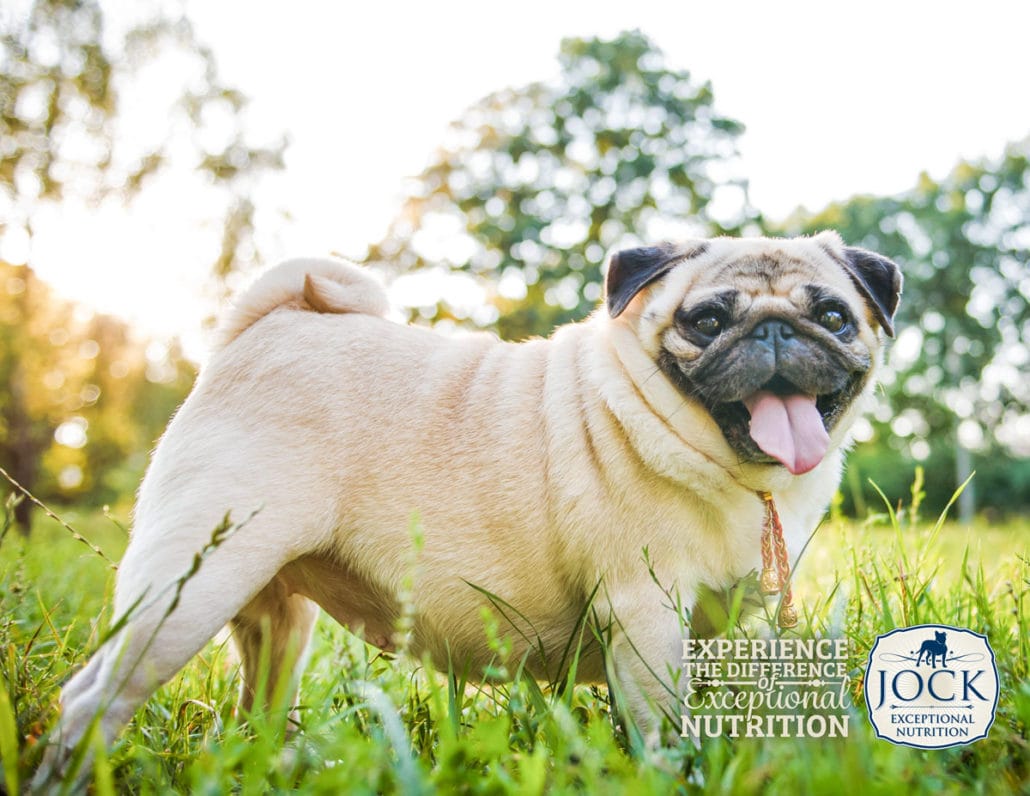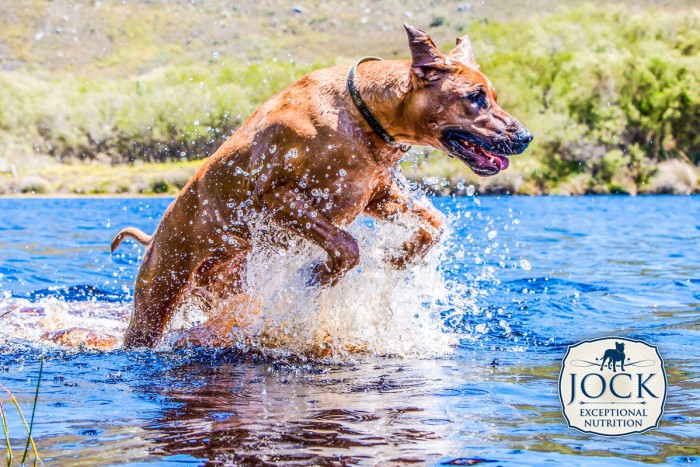Not only are humans now bigger than any other time in our history, it would seem the same is true for our best friends. According to a recent survey in 2014, just over half of all pets seen by vets around the country were overweight. The problem is compounded when you consider that less than 29% of South Africans think their pet is chubbier than it should be.
We spoke to Dr. Louis Boag, our in-house veterinary consultant, about what causes a pudgy pooch and how you can help your four-legged friend get rid of those extra kilos.
What causes dog obesity?
The major cause of weight gain in dogs, as with humans, is consuming more calories than the body uses as energy. These unused calories are stored as fat, which leads to weight gain over time. Dogs that are not exercised enough, are over fed, consume high-calorie foods, or are physically unable to exercise are most at risk of gaining weight.
Obesity in dogs can occur at all ages, but is more common in older dogs. It is also quite common amongst indoor dogs, dogs regularly consuming human food, and neutered dogs.
What are the health risks?
Excess weight is not an isolated problem as it can affect your dog’s health in a number of other ways. Apart from an increased risk of developing serious health issues like diabetes, heart disease and pancreatitis, obesity can also affect your dog’s joints and its ability to breathe properly. In fact, an obese dog can a have a reduced lifespan of up to 2 years.
Is your dog obese?
If you suspect that your dog might be obese, performing a simple rib-touch test can help you make sure. If its ribs are easily felt without being seen, then your dog is probably at its ideal weight. If you can’t feel its ribs, confirm with your vet whether your dog is obese or if this is a breed standard.
Helping your dog lose weight
Luckily the formula for helping your dog shed those unwanted kilos is quite easy: eat less, exercise more. By decreasing your dog’s food portions within reason and increasing its time spent exercising, its body will be able to burn more calories than it consumes and lose weight.
Vets also recommend feeding your dog twice a day – once in the morning and again in the afternoon. You should avoid feeding your dog table scraps or treating it with human food. Rather opt for spoiling your dog with treats designed specifically for them, or going for healthy human alternatives, like raw carrots, celery, cucumber, rice cakes or dried apricot.
In terms of exercise, try adding fetch or other games to your daily routine, or walking your dog twice a day instead of once. This will not only help the kilos melt off, but has the additional benefit of strengthening the bond between you and your dog.
Additional tip:
Premium dog food brands, like Jock, make it easier for you to feed your overweight dog less. They are nutritionally sounder than supermarket brands and contain higher quality ingredients to ensure a healthy pet. Check the back of the pack to see how much food you should measure out for your dog per day to maintain a healthy weight.


